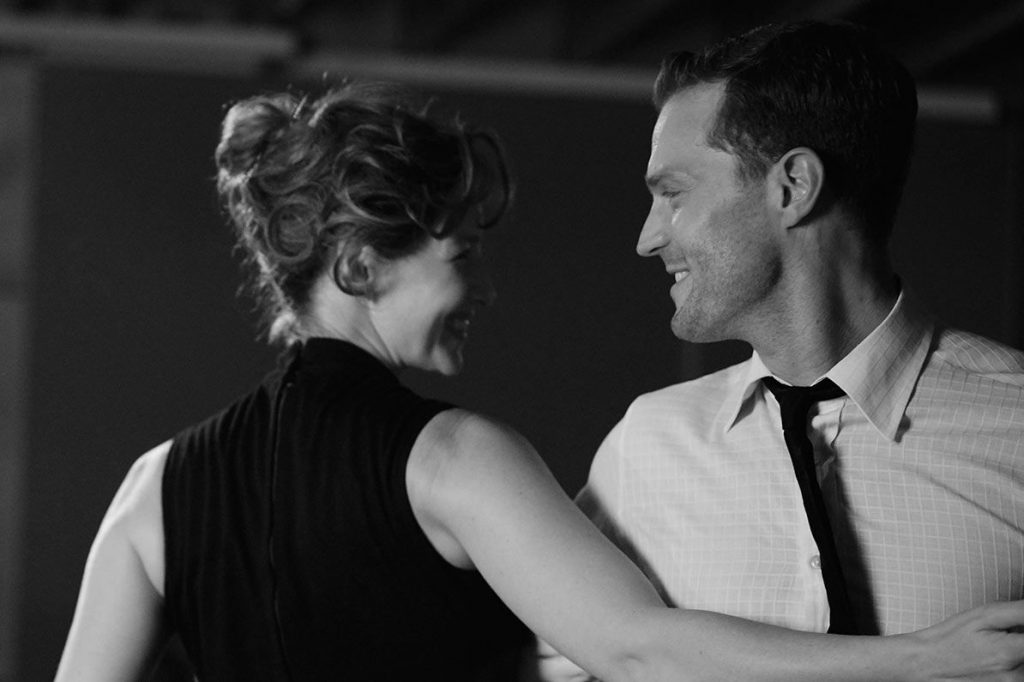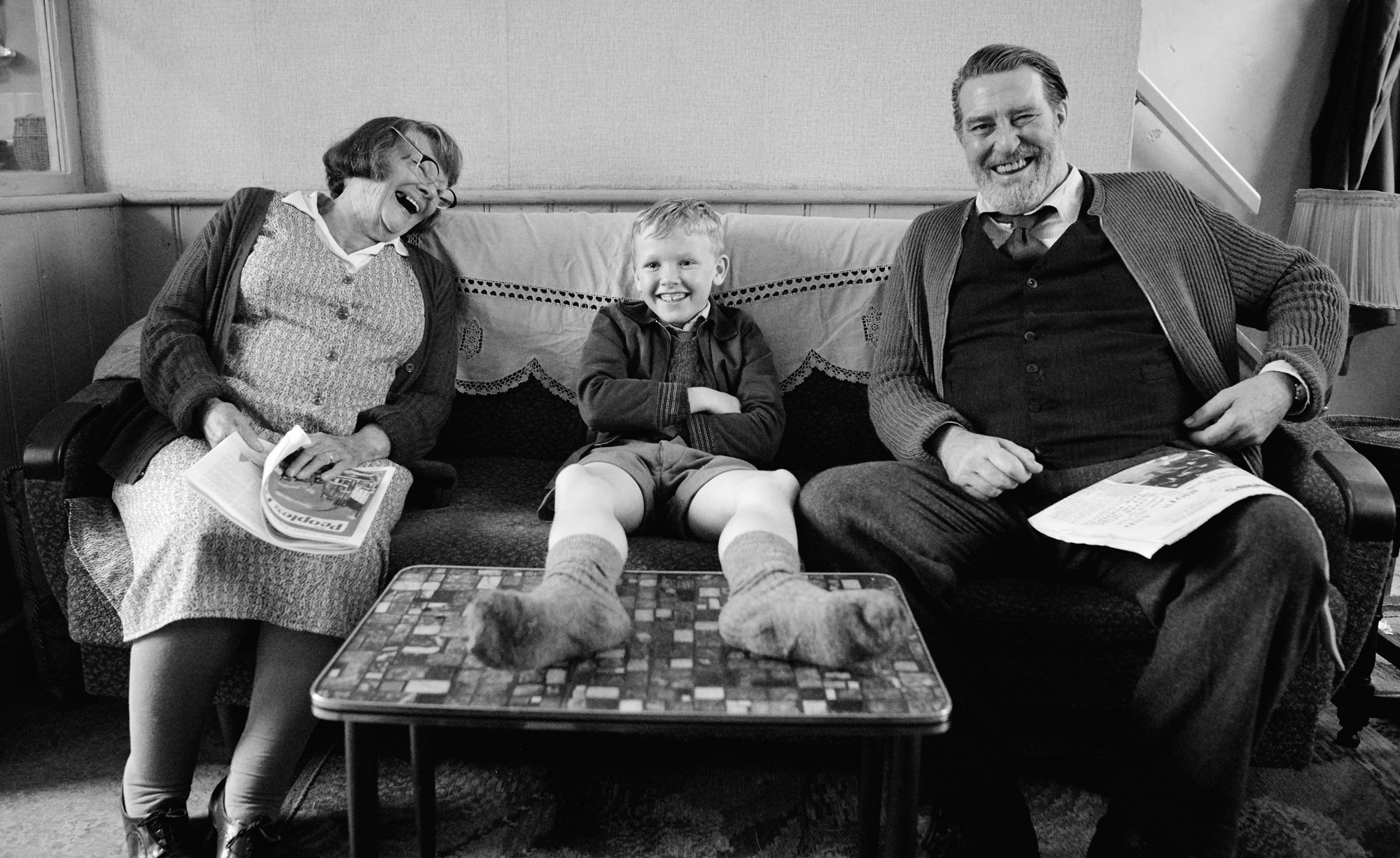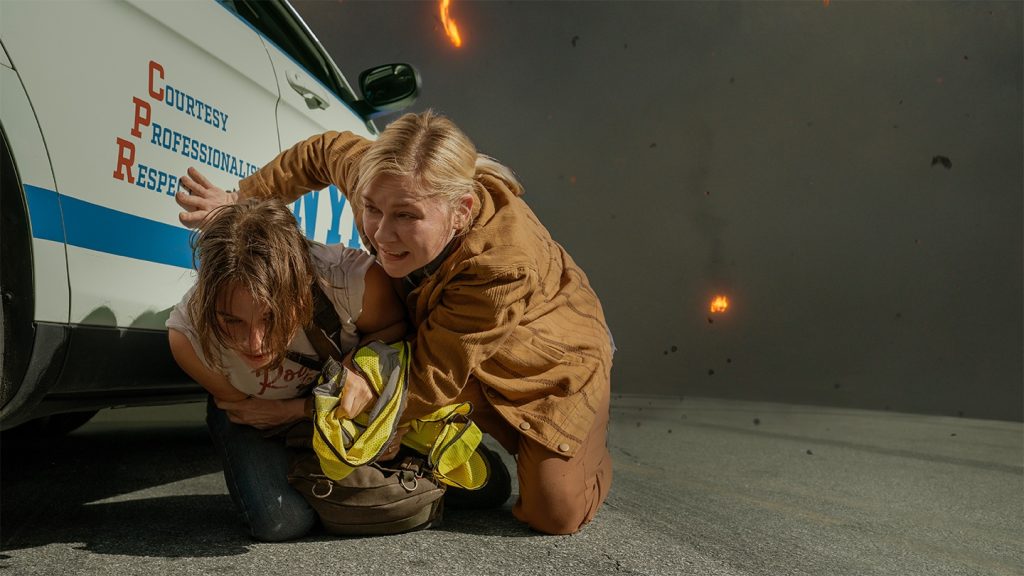Kenneth Branagh’s drama Belfast gets off to such a rough start, I frankly wasn’t sure if we’d make it back. It opens in garish color, in the present day, with snazzily photographed images of contemporary Ireland scored by a terrible Van Morrison song, and the sleek, surface sheen of the thing makes it look less like the opening of a major motion picture than a badly produced tourism video. (Don’t quote me on this, but there may be drone shots?) The camera then peeks over a wall into the past – 15 August, 1969, to be precise – and flips to black and white. And then it’s like a picture postcard: a working-class block in the title city, where everyone’s cheerful, kids play in the streets, neighbors greet each other. It is a place, we’re told later, where everybody knows you and everybody looks out for you. And as suddenly we’ve arrived, this utopia of urban living is punctured by a riot in the street.
It’s kinetic and violent and terrifying. It’s also too clean, an indication of the fact that Belfast is not just a movie photographed in black and white, but a story told that way – the Troubles as coming-of-age narrative, a thing that is often just kind of happening in the background while a young boy reckons with bickering parents and how to talk to girls. It’s not that it’s tasteless, per se; one can argue (and many certainly will) that the film is told from that child’s perspective, and that’s how he would perceive it. But it still makes for an uneasy mix of fond memories and breaking glass.
Buddy (Jude Hill) and his family are Protestants, but not to the point of fighting about it; “They’re friends, they’re family, same as us,” shrugs Granny (Judi Dench) of their Catholic neighbors. “They just kick with the left foot.” Buddy’s Pa (Jamie Dornan) tries to think optimistically – “That whole nonsense will end soon enough” – but the most aggressive of the instigators are harassing him, making pronouncements like “Cash or commitment” and “You’re either with us or you’re against us.”
Branagh’s screenplay treats organized religion with the proper reverence (none); Buddy and his brother only go to church because Granny insists, and the man of the cloth they encounter there is rendered as a caricature, a sweaty, screaming preacher who thunders about the road to hell before turning to his real interest: “Now, money.” But the clashes in the streets are getting scarier, so Pa begins contemplating “an escape route”: to London, or Sydney, or Vancouver.
But Ma (Caitriona Balfe) is resistant. “This is our home,” she insists, and the push-pull of comfort vs. change is at the heart of the story – the difficulty of going from the ease of home to the challenges of starting over, albeit in a safer place of greater opportunities. The picture is at its best when it gets explicit about that tension, and the speech where Ma articulates that question is poignantly written and beautifully played.

Unsurprisingly, considering the writer/director’s pedigree, the best thing about Belfast is its performances. Balfe and Dornan make a believable long-term couple, in that they have excellent chemistry and also clearly make each other insane; you can see the heat that brought them together, and also how it’s barely sustaining them anymore. (Also, between this and Barb and Star Go to Vista Del Mar, I guess Dornan can act, which comes as quite the surprise after slogging through three Fifty Shades movies.) Little Jude Hill is tremendous in the leading role, capturing the wonder and curiosity of his age, and (most memorably) the pure, heartbreaking terror of his reaction when the notion of moving is first floated. And Dench and Ciarán Hinds are delightful as the grandparents, reveling in their comfy byplay, spouting wisdom, helping him navigate his first schoolboy crush.
The cinematographer is Haris Zambarloukos, who’s been shooting for Branagh since Sleuth, but this is his most strikingly photographed film since Dead Again, even if the black-and-white seems chosen primarily to earmark the film as his Roma. (And some of the deviations from it are a more than little peculiar.) Branagh blocks most of his important scenes in cleanly composed, locked-down two- and three-shots, sometimes through windows and doorways, which gives the film a sense of eavesdropping on lives lived. And as such, we witness tragedy and joy in equal measure; there are a couple of short, throwaway dance scenes between the parents that tell us everything we need to know about their relationship.
There are a few small missteps along the way. The carefully framed appearance of a Thor comic is the kind of big, dumb wink you’d expect from something like Ghostbusters: Afterlife, and the use of old Western movies on the family television is a touch heavy-handed, considering where the narrative ends up. (And while it’s certainly just a case of poor timing, I don’t envy a filmmaker releasing a movie with this much Van Morrison music in it right now.)
Ultimately, Belfast is unabashedly and unapologetically sentimental, which will probably result in success a-plenty this award season. But like many a historical drama of that ilk, there’s something surface and hollow about the whole thing. Branagh’s screenplay is so informed by nostalgia that the stakes never quite feel as high as they should – it’s light and sparkling, and in a way that doesn’t seem connected to the material at hand.
B-
“Belfast” is in theaters Friday.



